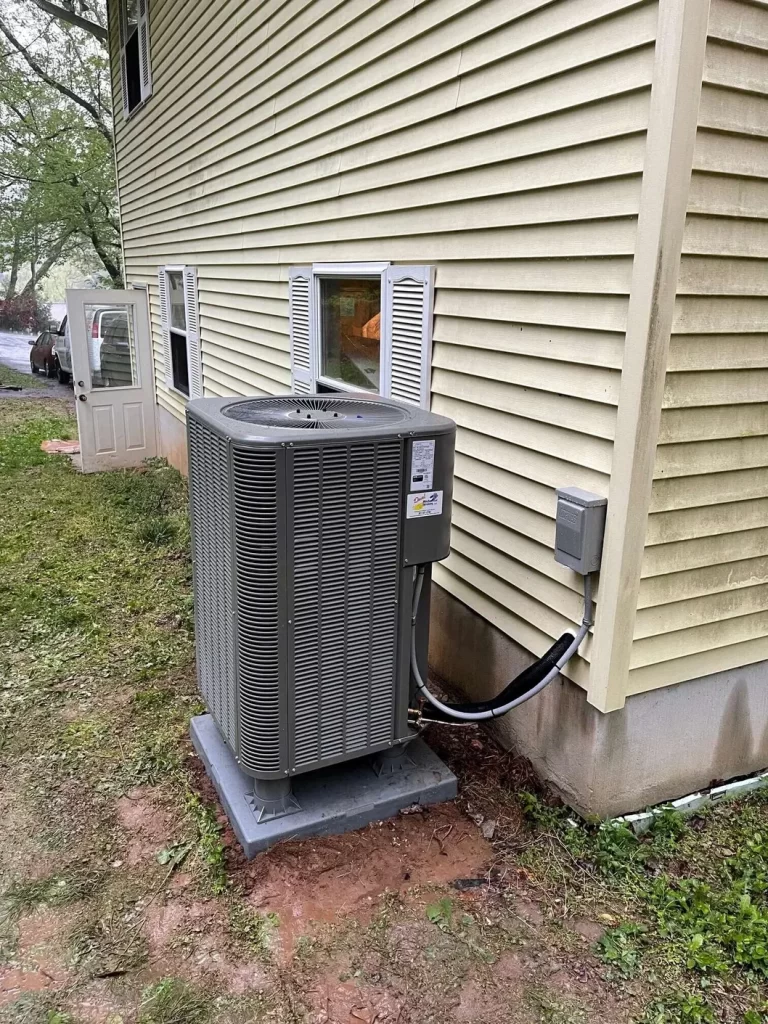It’s no secret that summers can get quite hot in Frederick County, even reaching up to the 90s at times.
At these sweltering temperatures, comfort and safety take precedence. While you might appreciate the sensation of a warm summer day for a short few hours outside, you don’t want it to get too hot inside your home.
So, what AC setting is ideal for the summer? And how can you maintain comfort without incurring significant energy costs?
Continue reading to learn the ideal AC setting for the summer and how to keep your home crisp, cool and comfortable all summer long.
Dave’s Cooling and Heating of Frederick certainly understands how important this is!
The Best AC Temperature for Summer According to the US Department of Energy
The DOE states that 78 degrees is the ideal AC temperature for the summer.
You run the danger of seeing an increase in your energy costs of 4-6 percent per degree if you drop below 78 degrees.
On a hot summer day, setting the temperature to 68 degrees may seem attractive, but doing so would cost money as your energy bill would rise.
Fortunately, there are other things you can do to keep your house cool without lowering your AC temperature below 78 degrees.
How to Cool Your Home without Touching the Thermostat
When they see 78 degrees, many people immediately say, “No way. That cannot possibly be low enough to be cozy.
However, the positive news is that you can chill your house down even more without turning the thermostat down.
Here we go over some ideas!
Invest in Fans
Start by investing in fans or turning them on if you already have them!
Although we do warn that because heat rises, ceiling fans may stir up the warmest air in your home, a basic ceiling fan can assist circulate the air.
Include a few standing, box, or even desk fans in the spaces you use frequently.
An indoor “wind chill” is produced when fans are blowing on or around you. As a result, your home’s actual temperature may drop by up to four degrees.
Minimize Sun Exposure
Limiting the amount of sunlight entering the rooms through the windows is an additional critical step.
This is specially true if any facade or windows in your home receive direct sunlight for a good portion of the day.
When the sun is shining hottest, closing your blinds or curtains will help to block some of this heat from entering your home.
Want to take it a step further? We recommend investing in some black out blinds or curtains. They can be dark but really prevent light from entering through.
Reduce Cool Air Loss
There are often cracks or leaks near doors and windows that are letting the cool air out of your home, making your HVAC system or AC work that much harder.
Consider finding these leaks and using weather stripping to help seal and minimize the cool air loss.
Invest in a Dehumidifier
We’ve all heard people claim that high temperatures without high humidity are preferable to “a dry heat.”
Why are we less comfortable in environments with high humidity? Our bodies struggle to cool off when the relative humidity exceeds 60 to 70 percent. You may lessen that oppressive, sticky feeling of heat and give your body a chance to balance itself by utilizing a dehumidifier in humid areas of your home.
What else?
The same DOE study that determined 78 degrees to be the ideal AC temperature for summer also provided us with another priceless nugget. You can decrease your energy costs by up to 15% by increasing the temperature in your home by 7 to 10 degrees for roughly eight hours each day.
Of course, nobody wants to stay inside their house when the temperature is 85 degrees. When is it safe to set your thermostat above 78 without sacrificing any comfort?
It may be best to set the thermostat higher when members of your family or home spend a significant portion of the day at work or school.
You can even adjust a programmable thermostat if you have one to reduce the temperature to 78 degrees before you get home. This allows your house to cool down before you come back home.
But what if someone spends most of their time at home? Another choice is to monitor the temperature at night. Nighttime temperatures are typically more bearable, allowing you to open the windows and run the fans to get some natural cooling.
Make sure your AC Is Running Smoothly All Summer without Spending a Fortune
While we gave some of our best tips to help cool down your home without spending more on your energy bill, sometimes your AC is simply out of shape and needs a tune up.
Air Conditioners need regular HVAC preventative maintenance to help ensure that the system is not over worked and is cooling your home as efficiently as possible.
Call us today and ask about Dave’s Club, our AC maintenance programs.


























